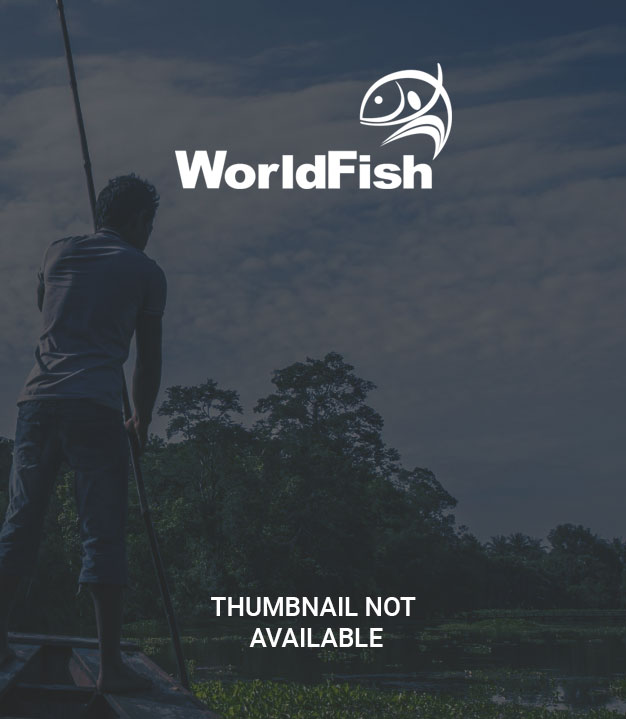Community-based fish culture: a viable coping strategy for farmers in the Mekong Delta?

Citation
Joffre, O.M. et al. (2011). Community-based fish culture: a viable coping strategy for farmers in the Mekong Delta?. Stewart, M.A. ; Coclanis, P.A. (eds.) Environmental Change and Agricultural Sustainability in the Mekong Delta. Advances in Global Change Research 45(4): 259-270
Floodplains are characterized by a period of several months when the land is not available for agriculture and large and open areas are used for fisheries. Enclosures in the flooded areas can be utilized to produce a crop of stocked fish, in addition to naturally occurring self-recruited species. The WorldFish Center and the Research Institute for Aquaculture no2 (RIA 2) tested options for community-based fish culture in floodplain enclosures in the Mekong Delta. The trials yielded fish production in the range of 61–179 kg ha-1. Results indicate that the models tested are sensitive and dependent on flood patterns and limitations imposed by the rice culture calendar. Other technical challenges included a short grow-out period and fingerling size. These initial trials have shown that community-based fish culture is an innovative approach for the Mekong Delta and has the potential to provide an alternative livelihood option in the face of environmental change and development. To increase uptake, the technical design of the approach could be further optimized, and mechanisms for community participation could be enhanced to increase economic incentives for adoption of the technology by farmers.
Permalink
Date Available
Type
Publisher
Countries
Research Themes
Language